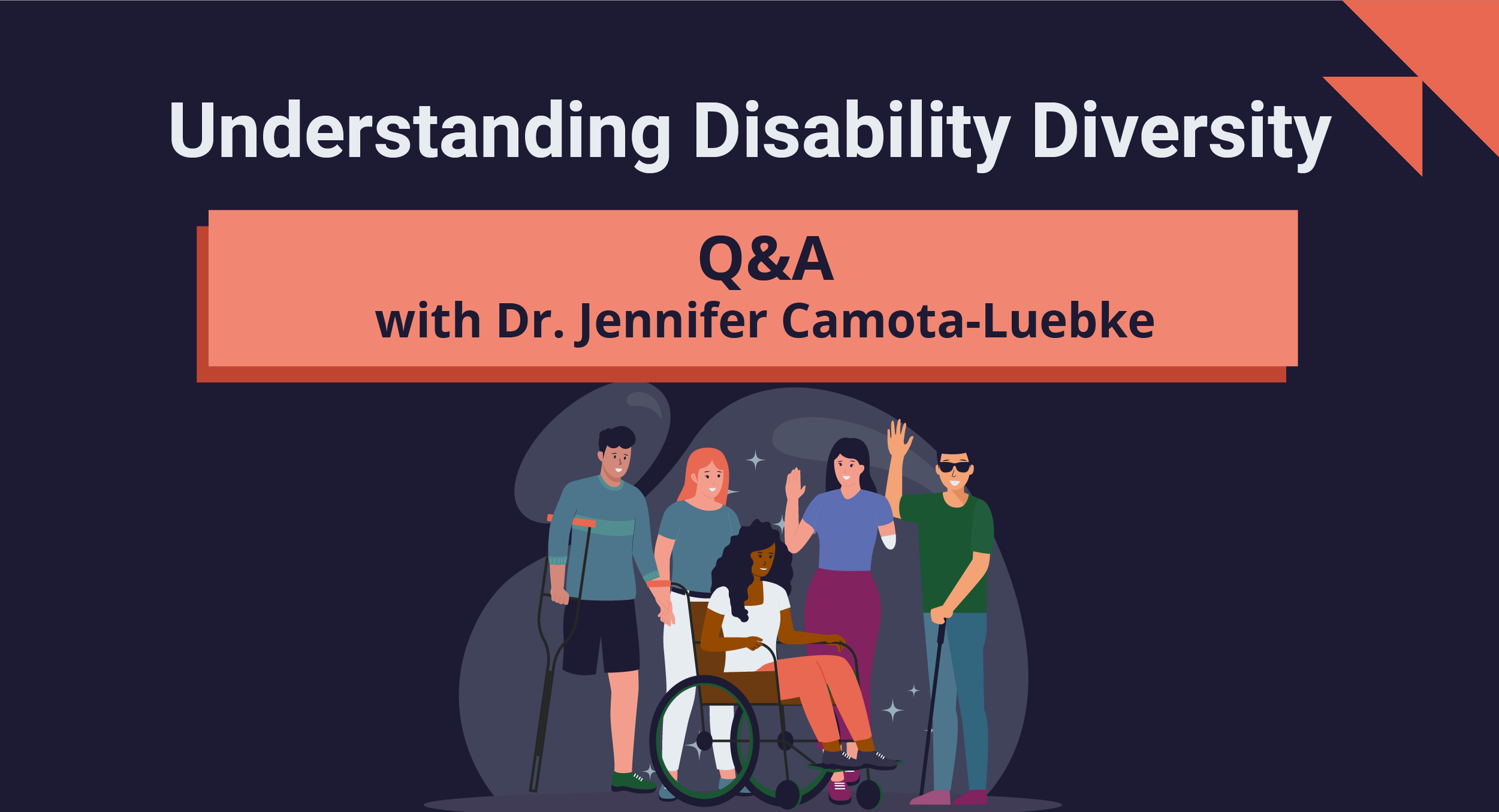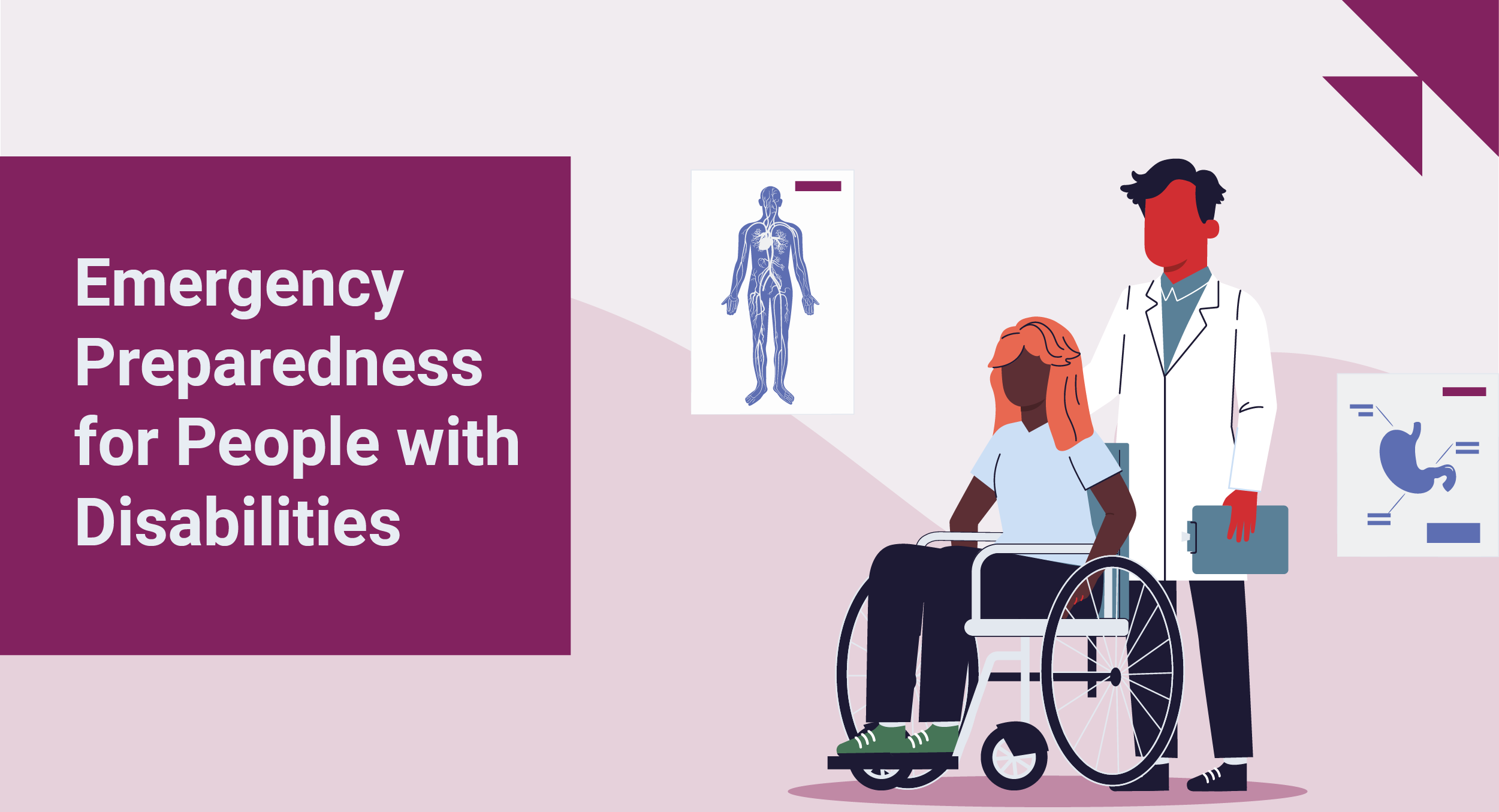
Emergency Preparedness for People with Disabilities
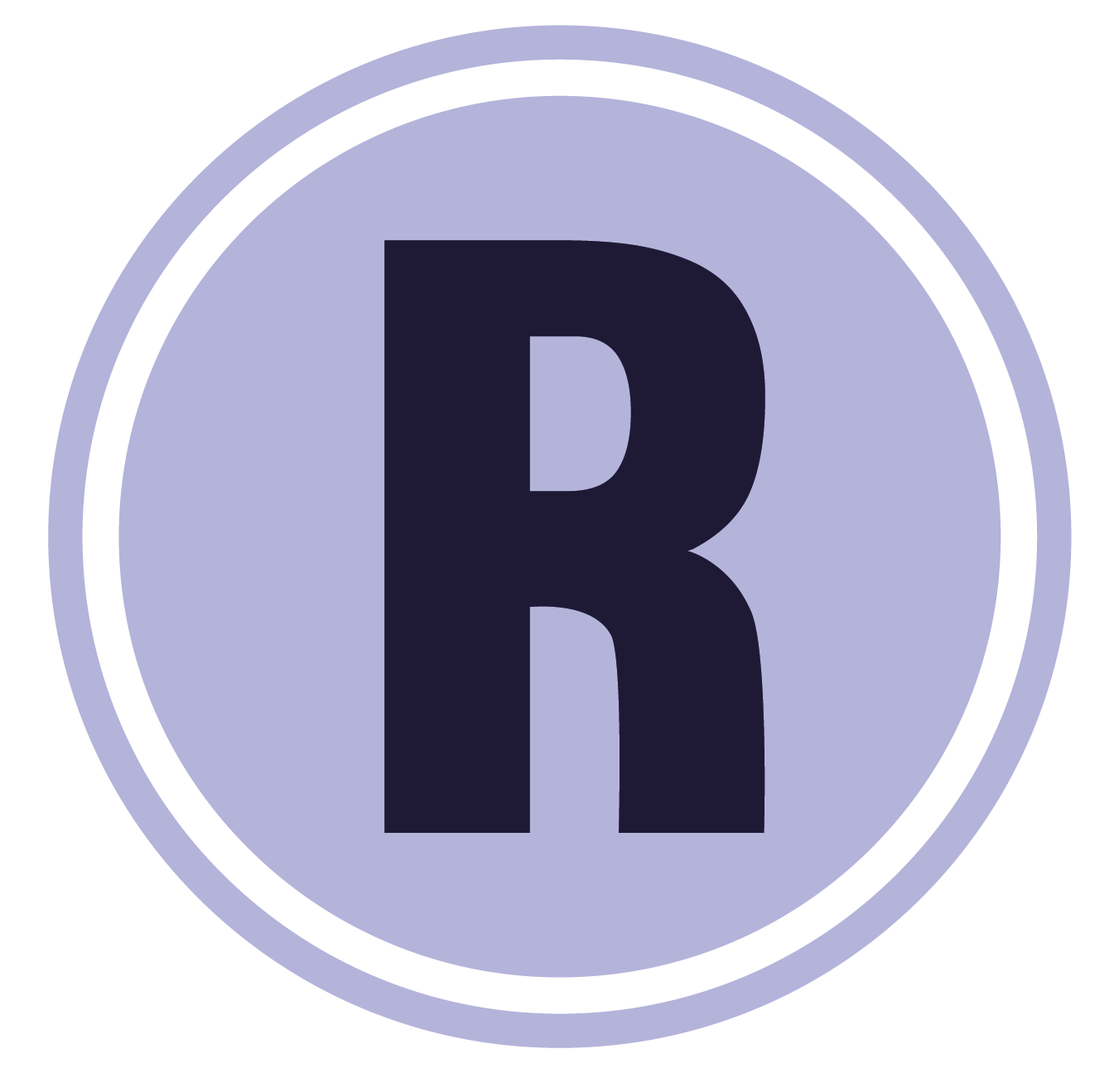 Relay Resources
:
Dec 3, 2024 9:00:00 AM
Relay Resources
:
Dec 3, 2024 9:00:00 AM
When a natural disaster hits, everyone in the community is vulnerable—including those who are disabled. Whether it’s a hurricane, fire, earthquake, flood, extreme weather conditions, or even a simple power outage, people with disabilities often need more time and support to navigate such events. Having an emergency preparedness plan and toolkit is critical for these types of emergencies. But it’s not just individual preparation that matters; cities and counties also need to have systems and support structures in place to assist disabled people.
Personal Preparedness
First, you must create a disaster preparedness plan. Because everyone is unique and has different abilities, each person's disaster preparedness plan should be specific to them. You could also use such a plan to help your neighbors and family.
Ask basic questions such as:
- What is the person’s range of mobility?
- What are multiple evacuation routes out of the residence/neighborhood?
- Are there any hearing or vision disabilities to be aware of?
- What are the medications, supports, medical equipment, and other considerations someone might need during and after a disaster strikes?
- Would headphones or other sensory precautions be helpful for neurodivergent individuals in such an event?
You should also make a list of what you will need during an emergency and gather those items. This may include:
- Medications and prescriptions
- Food–dehydrated meals or canned food, and a possible propane stove/gas to heat meals
- Water supply—a one gallon per person per day for up to two weeks
- An emergency contact list of family, friends, and neighbors
- Prescriptions—have at least two weeks of prescriptions on hand
- Needed medical equipment and support, such as hearing devices, a wheelchair, a cane, etc.
- If the support you need runs on power, make sure you have extra batteries or even a backup generator.
This OHSU Ready Now! toolkit offers a comprehensive guide for everything one might need.
.png?width=772&height=390&name=unnamed%20(4).png)
Network with Those Around You
Your immediate neighbors are often the first line of defense regarding natural disasters. During a disaster, people quite literally rely on those closest to them for survival. Consider making a plan with one or two other neighbors to check in on you or another person with a disability if such a disaster occurs.
System Preparation
In 2021, the city of Portland, Ore., failed an audit, during which an auditor found that “the city is unprepared to assist people with disabilities during a disaster.” The audit found that the city doesn’t have the basic “building blocks” of preparation, such as knowing who needs services, what kind of services they need (for instance, how does one receive an emergency alert if they are deaf or blind?), and what sort of transportation people may need, among other findings. The Americans with Disabilities Act requires an equitable response for people with disabilities during an emergency, but this doesn’t mean that cities or counties are necessarily proactive about creating an active plan for the disabled during emergencies.
“We know that when there’s a disaster, people who have disabilities, along with people who are elderly, people who are poor, people of color, they’re the worst affected by those disasters,” said Tom Stenson, the deputy legal director for Disability Rights Oregon, in an interview with OPB.
Stenson noted the importance of having this information; the majority of people who died in Hurricane Katrina, for instance, were elderly and those with disabilities.
During the audit, Stenson noted, “What really struck me is that people with disabilities are just absent from the planning process.”
As with other disability issues, this is unfortunately too common. The world has often been designed and built by nondisabled people who fail to provide inclusive and accessible systems. While individuals can do everything they can to prepare for a disaster, having prepared systems is also necessary.
Neighborhood Emergency Team
You can also work with an emergency team in your neighborhood to help make sure people in your community are protected in a disaster. In Portland, volunteer-run emergency teams are known as “NET,” or Neighborhood Emergency Teams. Volunteers can take a safety and emergency training course that enables them to be a local leader in their neighborhood and know how to communicate with others. Portland has a complete resource toolkit here.
.png?width=960&height=702&name=unnamed%20(5).png)
Safety First
No one ever wants or expects a disaster to happen to them. But by being prepared for such an event—and helping disabled people in our community also be ready—we can navigate these emergencies in a safer manner. While individual readiness is essential, true resilience emerges when communities, cities, and governments prioritize accessibility and inclusivity in their emergency strategies. Together, we can ensure that no one is left behind when disaster strikes
Relay Resources offers employment and business solutions for and with people with disabilities. Learn more about what Relay Resources does here, along with how you can support inclusive workplaces or find employment.
Related Posts
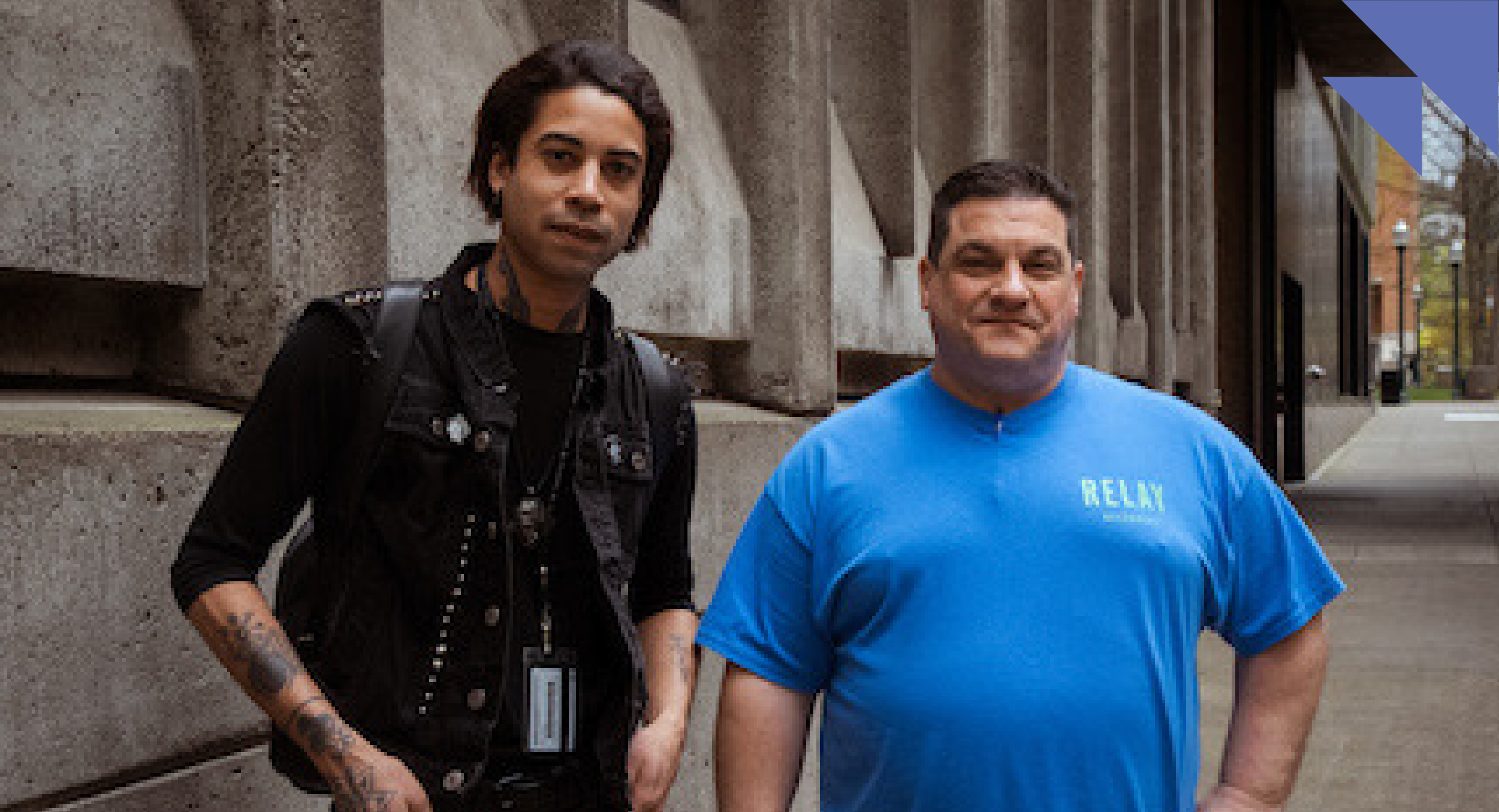
Relay Resources Receives Honors for Cleanliness in Janitorial Services
Relay Resources is proud to announce that our janitorial team (including workers from floor maintenance and our workforce training program) recently...
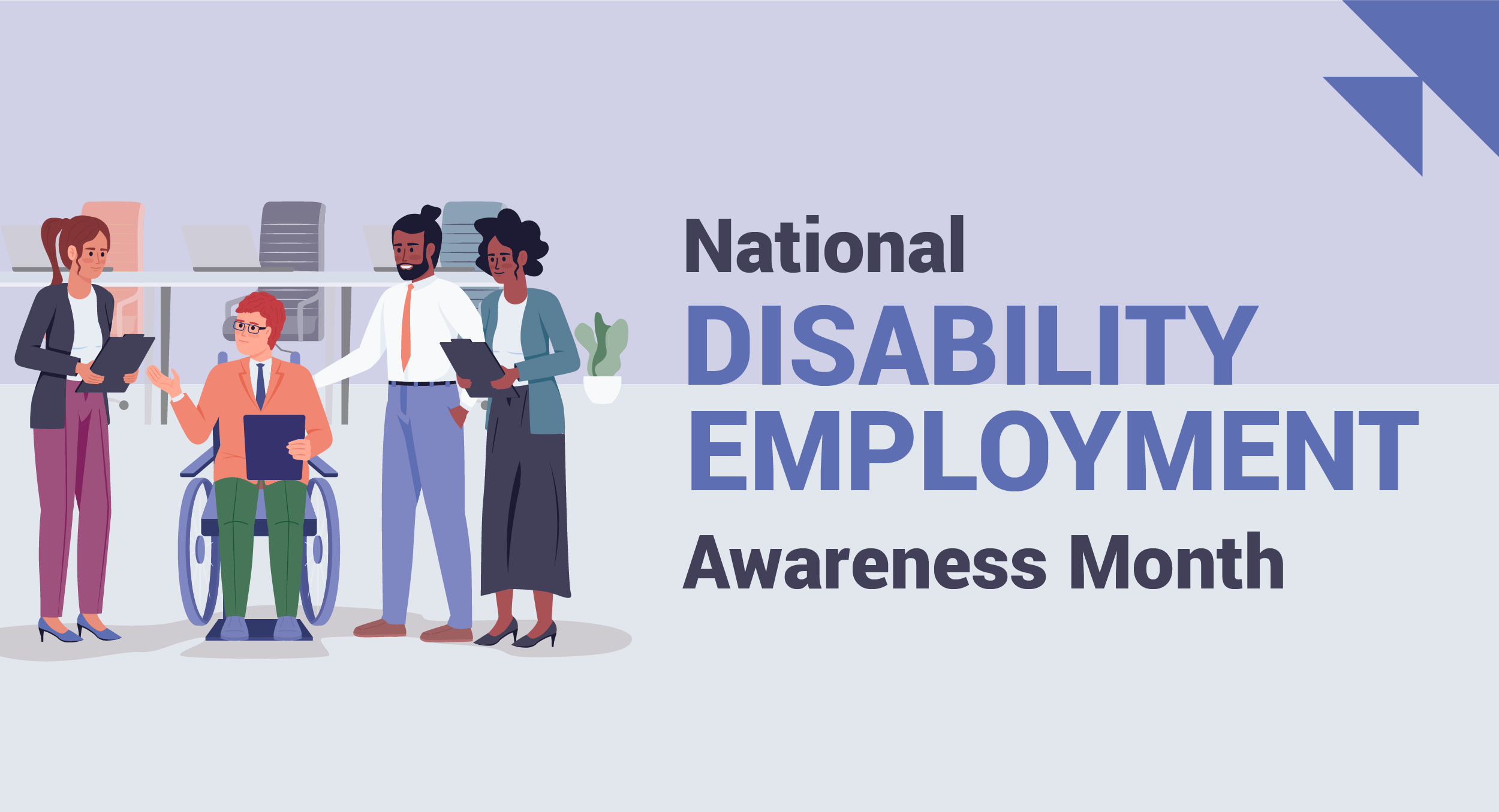
October is National Disability Employment Awareness Month
October is National Disability Employment Awareness Month (NDEAM), an initiative started by the Office of Disability Employment Policy (ODEP). The...
